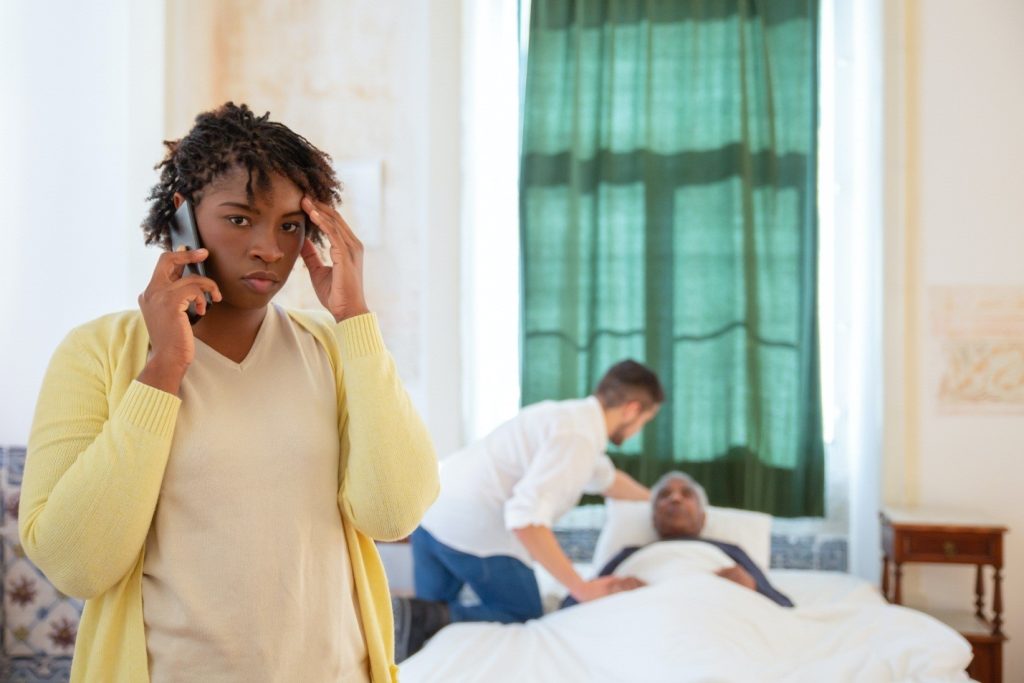Now Reading: Nursing Home Neglect or Abuse Signs – A Legal Issue not to Overlook
-
01
Nursing Home Neglect or Abuse Signs – A Legal Issue not to Overlook
Nursing Home Neglect or Abuse Signs – A Legal Issue not to Overlook
Having senior family members in a nursing home is a burden on many peoples’ souls. Nevertheless, our elders live under the undivided care of professionals in facilities that guarantee our beloved above-standard healthcare, compassion, safety, and comfortable lifestyles. Or so it is on paper. In reality, seniors in nursing homes do not live those sheltered, idyllic lives depicted by the leaflets. Sometimes, they suffer all sorts of accidents that most of us laugh away, blaming old age and poor health.
To some extent, these injuries are commonplace. After all, the most frequent mishaps occurring in nursing homes are trips and falls. “Grandma doesn’t look where she steps.” “Uncle John is an airhead; he always stumbles and falls.” But what accidents should trigger the family’s suspicion? How many times does grandma have to slip or bump into things until we start asking questions? We are here to find out!
Nursing Home Accidents: When are They NOT Just Accidents?
One of the issues with crying wolf and accusing the facility of neglect or abuse of your seniors is that, by nature, nursing homes deal with patients in poor health. In comparison to assisted living communities, in nursing homes, patients present chronic diseases, mild-to-moderate mental health impairments, limited mobility, neurological dysfunctions, etc. Therefore, it is hard to hold the facility liable for falls, slips, stumbles, bruises, concussions, scratches, etc., if you do not have clear signs of neglect or abuse.
In determining what constitutes an unfortunate accident and what something else is, we consulted with specialized lawyers in this legal matter. First, we learned that nursing home abuse and neglect are far more widespread than any of us like to imagine. Moreover, proving abuse or neglect is difficult, but not impossible, with the help of an expert nursing home abuse attorney versed in such claims and lawsuits. The third thing we learned was that you need to do your homework well in understanding or proving nursing home troubles before you speak to a lawyer.
The first red flag to watch out for is a significant lack of information you receive from the nursing home related to your relative’s physical or emotional distress. According to state and federal laws, the nursing home should notify you every time grandma suffered a physical injury or shows sudden emotional or behavioral changes. Failure to do so means you need to step in and learn more about what is going on there.
Top Signs that Your Relatives are Suffering Some Form of Nursing Home Neglect/Abuse
The statistics on nursing home abuse are grim. NGO experts say that one in ten seniors living in such facilities suffers from abuse, starting to the most obvious – physical injuries – and ending with more subtle ones, such as verbal or emotional abuse or financial exploitation. Here are the most common red flags to pay attention to if you know anyone living in such a place:
- Frequently visible cuts, bruises, scratch marks, concussions, etc. that are otherwise unexplainable by the person’s health status;
- Constant failure to notify the family in case such issues occur;
- Bone breaks or fractures occurring in the lack of significant (notified) falls or slips;
- Frequent, untreated bed sores of high intensity;
- Burns, bite marks, slap marks, etc.;
- Constant poor hygiene;
- Frequent infections or sepsis;
- The worsening of health problems due to lack of medical treatments, medication errors, mistreatments, neglect of symptoms, etc.
- Improper nutrition programs, with signs of malnutrition or dehydration;
- The resident’s medical devices and health support accessories are constantly missing, misplaced, or lost (reading glasses, cane, etc.);
- The resident shows sudden behavioral changes or manifests anxiety, depression, anguish, catatonia, poor sleeping patterns, refusal to eat, social withdrawal, etc. These can be signs of sexual abuse, so do not overlook them as part of the senior’s aging process or mental decline.
- Your relative complains about personal items starting to miss photos, phone, money, clothes, etc.
What is the Course of Action You Should Take if You Notice these Signs?
To do nothing is not the way to address such problems. Therefore, the first reasonable curse of action is to file an official complaint to the nursing home’s board of directors or administration.
While you hope to receive an answer to your inquiries and things to solve well for all residents’ greater good, you can also file a report with the Long-Care Ombudsman Program in your state. The federal law requires each state to run such a program. It will help you advocate for rights and improvements in the long-care system while addressing issues and complaints.
Sometimes, the senior’s abuse or neglect is so significant you cannot stand and wait for the authorities to deem you worthy of an answer or a proper investigation. In this case, call the police and, in parallel, gather other evidence of abuse to present them to your attorney.
A nursing home abuse attorney will most likely ask you for proof: pictures of the senior’s physical injuries, an affidavit from the victim describing other types of abuse/neglect, the patient’s medical records, bills, records, etc.
Bottom Line
Even if a loved one is in a nursing home, this does mean you cannot do anything for them to live a decent life. So get involved and keep your eyes open to any sign of neglect or abuse!










